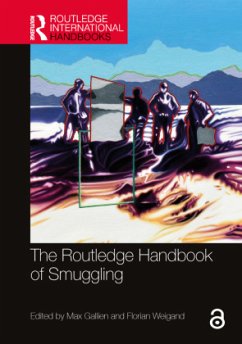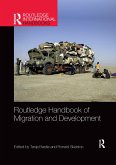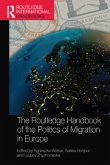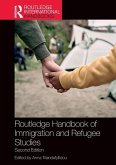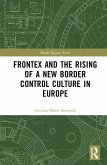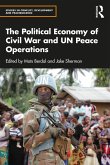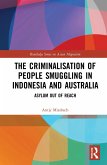The Routledge Handbook of Smuggling offers a comprehensive survey of interdisciplinary research related to smuggling, reflecting on key themes, and charting current and future trends.
Divided into six parts and spanning over 30 chapters, the volume covers themes such as mobility, borders, violent conflict, and state politics, as well as looks at the smuggling of specific goods - from rice and gasoline to wildlife, weapons, and cocaine. Chapters engage with some of the most contentious academic and policy debates of the twenty-first century, including the historical creation of borders, re-bordering, the criminalisation of migration, and the politics of selective toleration of smuggling. As it maps a field that contains unique methodological, ethical, and risk-related challenges, the book takes stock not only of the state of our shared knowledge, but also reflects on how this has been produced, pointing to blind spots and providing an informed vision of the future of the field.
Bringing together established and emerging scholars from around the world, The Routledge Handbook of Smuggling is an indispensable resource for students and researchers of conflict studies, borderland studies, criminology, political science, global development, anthropology, sociology, and geography.
Divided into six parts and spanning over 30 chapters, the volume covers themes such as mobility, borders, violent conflict, and state politics, as well as looks at the smuggling of specific goods - from rice and gasoline to wildlife, weapons, and cocaine. Chapters engage with some of the most contentious academic and policy debates of the twenty-first century, including the historical creation of borders, re-bordering, the criminalisation of migration, and the politics of selective toleration of smuggling. As it maps a field that contains unique methodological, ethical, and risk-related challenges, the book takes stock not only of the state of our shared knowledge, but also reflects on how this has been produced, pointing to blind spots and providing an informed vision of the future of the field.
Bringing together established and emerging scholars from around the world, The Routledge Handbook of Smuggling is an indispensable resource for students and researchers of conflict studies, borderland studies, criminology, political science, global development, anthropology, sociology, and geography.

